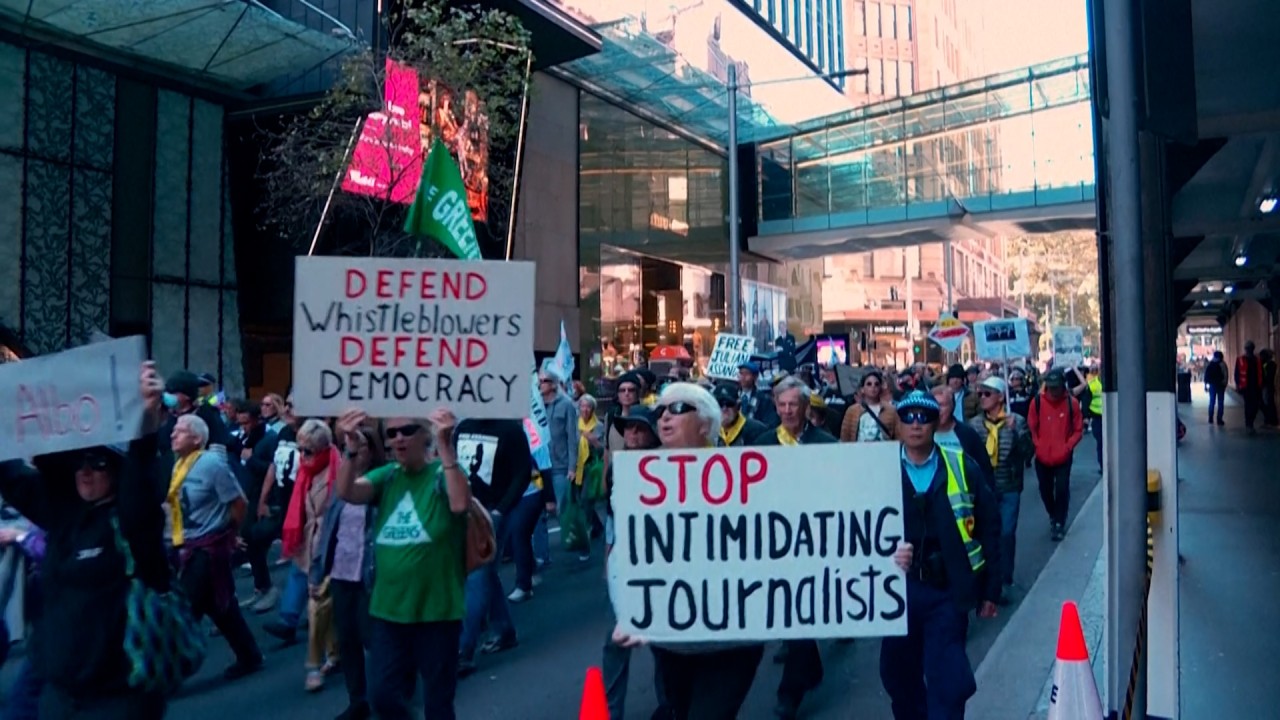
To Hong Kong’s critics, some national security laws are more equal than others
- Those who attack the national security law for Hong Kong seem oblivious to the legal landscape in their own countries
- Julian Assange is fighting extradition to the US for violating its 1917 Espionage Act, while in the UK a strict national security regime also prevails
Although the national security law is heavy on human rights, Western countries often demonise it. Despite having tough national security regimes of their own, they reacted to the enactment of the law for Hong Kong.
Although British Foreign Secretary James Cleverly claimed in September that the national security law “continues to undermine Hong Kong’s legal and judicial systems”, this is not how its operators see things.
Since the enactment of the law, the judiciary has skilfully interpreted its provisions in a way that respects common law traditions. Indeed, in 2021, the Court of Final Appeal noted that “it is evident that the legislative intention is for the [national security law] to operate in tandem with the laws of the [Hong Kong special administrative region], seeking ‘convergence, compatibility and complementarity’ with local laws”.

Among those rights is the right to a fair trial. This includes access to legal counsel, the presumption of innocence, the testing of prosecution witnesses, the giving and calling of evidence, and conviction only when guilt is proved beyond reasonable doubt.
A most severe national security law you will have never heard of
Yet the critics have little to say about other national security regimes, however draconian.

In the US, a battery of laws have dealt with national security, including the Patriot Act (2001). In suspected terrorism cases, the act weakened privacy rights by allowing the government access to people’s telephone records without court authorisation. Although the act was reformed by the Freedom Act (2015), which was supposed to end bulk surveillance, the National Security Agency still collected large amounts of data.
Assange’s WikiLeaks revealed how at Guantanamo Bay, the US military prison in Cuba for terror suspects, new prisoners were held in isolation to soften them up before what was euphemistically called “enhanced interrogation”. The New York Times says that since 2002, about 780 prisoners have been held at Guantanamo Bay, of whom 30 remain. Some have been held for years without due process, with little or no complaint from Britain and its partners.
In the UK, a strict national security regime also prevails, including the National Security Act (2023). Its sweeping provisions create new espionage and sabotage offences, curb the pre-trial rights of suspects, and give the police intrusive search powers. Unlike the national security law for Hong Kong, it does not incorporate the ICCPR. It was denounced in Parliament for its “chilling effect” on investigative journalism, and the Campaign for Freedom of Information called it “oppressive and disproportionate”.
Since 2003, moreover, it has been possible for British judges to dispense with juries if there is a serious risk of jury tampering, yet the critics only complain when this happens in Hong Kong. Even though foreign lawyers are generally barred from British courts, the critics fret over Hong Kong restrictions on overseas lawyers in national security trials.
To be credible, Western powers need to end their double standards. The national security law has been wisely applied by an independent judiciary, and its prioritisation of human rights distinguishes it from less liberal national security regimes elsewhere.
Grenville Cross SC is a criminal justice analyst


